 Were the Articles of Confederation a success or failure?
I finished reading Merrill Jensen's The Articles of Confederation (1940). It's the first book I've read for my new book project about the Articles of Confederation and it's the last book historians have written specifically about the Articles and how the Continental Congress drafted them.
Were the Articles of Confederation a success or failure?
I finished reading Merrill Jensen's The Articles of Confederation (1940). It's the first book I've read for my new book project about the Articles of Confederation and it's the last book historians have written specifically about the Articles and how the Continental Congress drafted them.
Jensen spends most of his conclusion discussing whether or not we can view the first constitution of the United States as a success or failure. He states that "the fact that the Articles of Confederation were supplanted by another Constitution is no proof either of their success or their failure. Any valid opinion as to the merits of the Articles must be based on a detailed and unbiased study of the confederation period."[1] I agree.
The only way to assess the success or failure of the United States' first constitution is to study them in action. And this bring us to the point of Jensen's book: Jensen intended for The Articles of Confederation to establish the context and knowledge he needed readers to have so they could best understand the book he wanted to write, The New Nation: A History of the United States During the Confederation, 1781-1789 (1950).
Jensen's question and point are interesting, but are they the question and point I want to answer and make in my study of the Articles?
Recognizing a Rabbit Hole
 I came to be interested in the Articles of Confederation because so many recent studies about the Constitution of 1787 treat the Articles of Confederation as a stepping stone to the Constitution. These studies discuss how it was a flawed constitution and reason that those who drafted the Articles never intended for it to stand as a permanent, lasting government.
I came to be interested in the Articles of Confederation because so many recent studies about the Constitution of 1787 treat the Articles of Confederation as a stepping stone to the Constitution. These studies discuss how it was a flawed constitution and reason that those who drafted the Articles never intended for it to stand as a permanent, lasting government.
These claims don't make sense to me given what I know about the Revolution.
Additionally, an article I wrote about trade during the Confederation era came back from peer reviewers with a recommendation that I flesh out and expand the historiography section on the Articles of Confederation. That's when I found that I couldn't expand the section because there wasn't more literature to add. Jensen had written the last book on the subject and subsequent works only address the Articles on their way to a discussion of the Constitution of 1787.
The realization that there was such a gap in the historiography combined with the question of what did the framers of the Articles intend the constitution to be inspired me to take up this project.
Were the Articles of Confederation a success or failure as a constitution? This isn't a question I want to answer. I want to answer three different questions:
1. In what context did the Continental Congress draft the Articles of Confederation?
2. What intent did the framers of the Articles have for the constitution? Was it to be a permanent constitution or did they intend for it to serve as a temporary measure until a future congress could draft a more full constitution?
3. How did the thirteen states come together to draft and ratify the Articles of Confederation? How did they overcome their regional, economic, and political differences to form a union?
Avoiding the Rabbit Hole
I'm grateful for the work Merrill Jensen did in The Articles of Confederation, yet I want to write a different book.
History is about people and Jensen didn't really discuss people in his book. His work was meant to serve as an extended introduction to the book he wanted to write. I want to write a book about how the Articles of Confederation came to be, the men who drafted them, and how those men came to their ideas.
I also want to provide more context than Merrill Jensen did in his book. Jensen mentioned how the men who drafted the Articles spent a lot of time referencing history in their arguments for and against certain articles. Yet Jensen didn't explore historical precedents for the Articles. Both the Netherlands and Switzerland had confederations at the time Richard Henry Lee resolved that Congress should establish a committee to draft a confederation.[2] What role did these foreign and contemporary confederations play as models for the Articles?
Jensen barely mentioned slavery and yet today we know that slavery and protecting it played a huge role in the governance of the early United States. Surely slavery played a role in the drafting of the United States' first constitution too. I need to investigate that role.
Also, what role did land and the west really play in the Articles and their ratification? For Jensen, limiting the boundaries of states like Virginia, which had charter rights to land from the Atlantic to the "South Sea," proved to be a central controversy. This may be the case. At this point I know little about the political and cultural rivalry that existed between Maryland and Virginia (I need to learn more about it), but I know all about the political and cultural rivalry that existed between New York and New England and land played a big role in it.

Jensen may be right that land played a central role in drafting and ratifying the Articles, however, I noticed something curious in his footnotes: Jensen did not cite a lot of secondary sources; he relied on a lot of documentary editions and some manuscripts. When he did cite a secondary source, several citations were for works by Frederick Jackson Turner.
I know about Turner and his work, but I've never read Turner. I think this may be the next step in my project. I think I need to take a quick step back and explore the historiography that clearly influenced Jensen so I can better understand where Jensen was coming from, where I agree and disagree with him, and how I want to move forward.
Conclusion: Stay Focused
When I wrote my dissertation, I felt like I had all the time in the world. I had a funded position, research fellowships, and my dissertation was my full-time job. I thought nothing of spending a month or more in distant archives. Heck, I moved to Albany, New York so I could "reside" in the two most important archives for my project: The New York State Library and Archives.
Now, I have a full-time job with Ben Franklin's World so I have to work on this project differently. I have to work smarter. I need to stay focused on my research questions and not chase as many interesting questions, ideas, and bits of information down rabbit holes. I suppose that is the point of this post: A reminder to myself of what my research questions and goals are so I can stay focused and eventually write and publish a book.
Avoid the rabbit holes, Liz.
Notes
[1] Merrill Jensen, The Articles of Confederation: An Interpretation of the Social-Constitutional History of the American Revolution, 1st edition, (Madison: University of Wisconsin Press, 1940), pg 239.
[2] On June 7, 1776, Continental Congressman Richard Henry Lee of Virginia made the following resolution in the Second Continental Congress: "Resolved, That these United Colonies are, and of right ought to be, free and independent States, that they are absolved from all allegiance to the British Crown, and that all political connection between them and the State of Great Britain is, and ought to be, totally dissolved.
That it is expedient forthwith to take the most effectual measures for forming foreign Alliances.
That a plan of confederation be prepared and transmitted to the respective Colonies for their consideration and approbation."

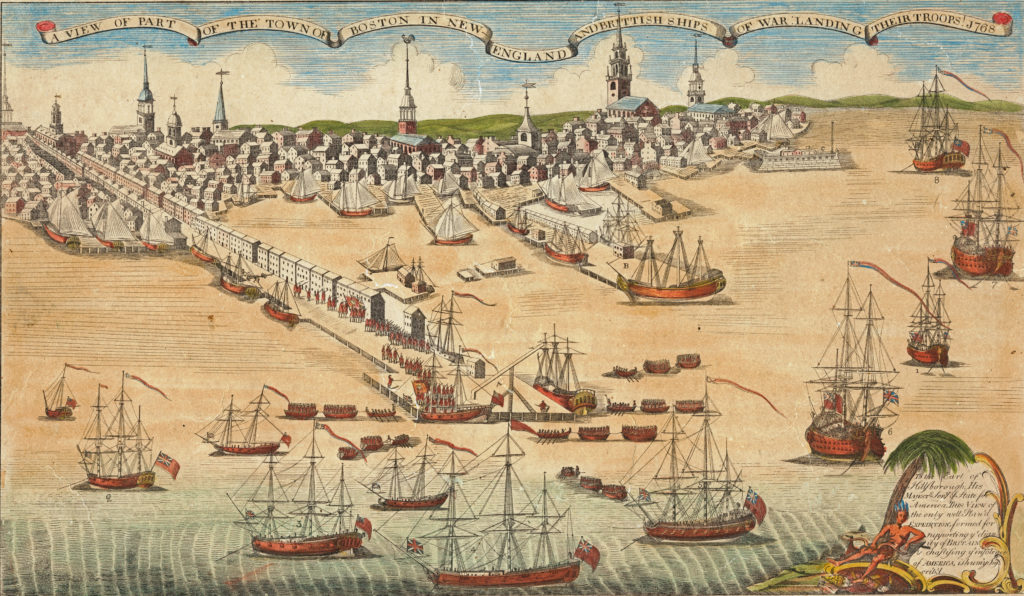
 I often wish I had some sort of time creation device. I'd take Hermione's time turner if it were available. However until such a device exists, I must create time the old fashioned way: by finding and making it within my schedule.
I need time for my new research project on the Articles of Confederation. I started this new project during a two-day research trip I tied in with a speaking engagement in late October. Since then progress on the project has been slow, but I'm making progress.
I often wish I had some sort of time creation device. I'd take Hermione's time turner if it were available. However until such a device exists, I must create time the old fashioned way: by finding and making it within my schedule.
I need time for my new research project on the Articles of Confederation. I started this new project during a two-day research trip I tied in with a speaking engagement in late October. Since then progress on the project has been slow, but I'm making progress.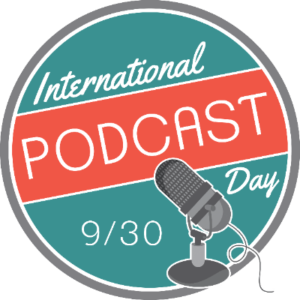 September 30th marks
September 30th marks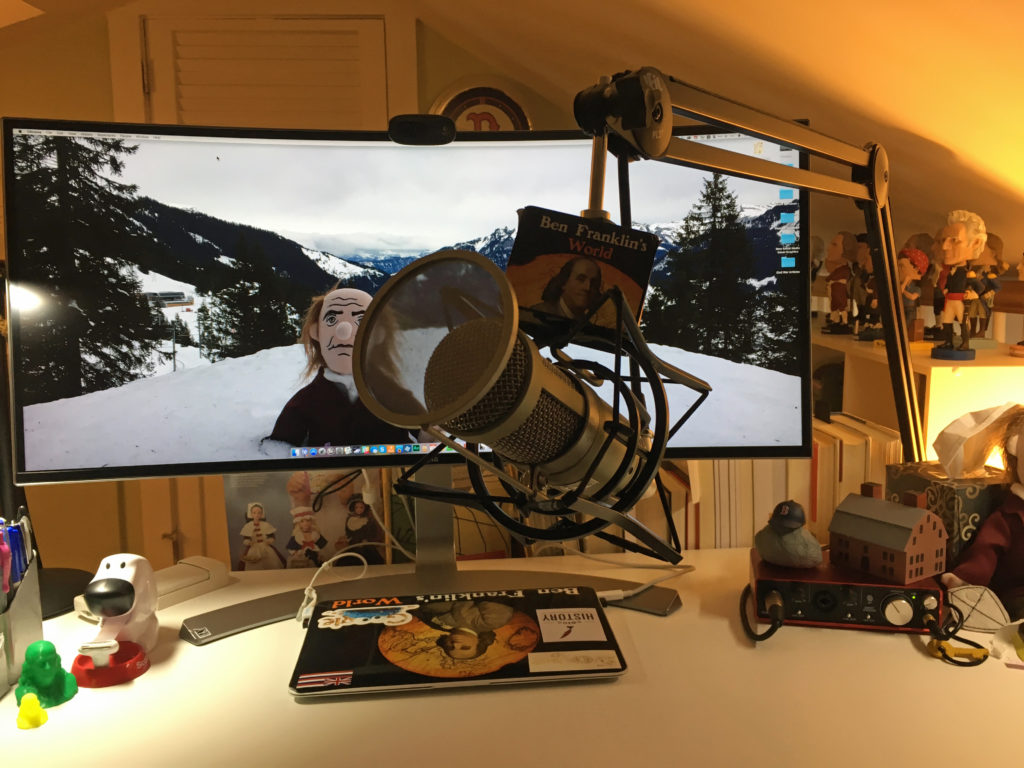

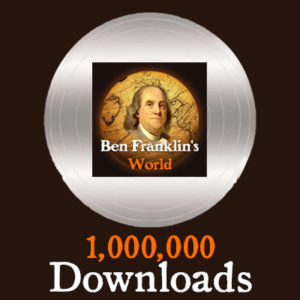 Ben Franklin's World hit a big milestone this past weekend. On Saturday, September 17, 2016, it reached and surpassed 1 million downloads.
Or as I like to joke,
Ben Franklin's World hit a big milestone this past weekend. On Saturday, September 17, 2016, it reached and surpassed 1 million downloads.
Or as I like to joke, 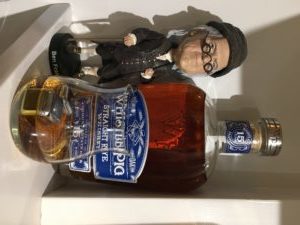 When episode 100 airs tomorrow (Sept 20), I will enter a different level in the podcasting space; the level that says I'm statistically likely to continue podcasting for another 1-3 years for a total of 3-5 years. It will be interesting to see if this holds true or if Ben Franklin's World and I become a statistical outlier. Time will tell.
When episode 100 airs tomorrow (Sept 20), I will enter a different level in the podcasting space; the level that says I'm statistically likely to continue podcasting for another 1-3 years for a total of 3-5 years. It will be interesting to see if this holds true or if Ben Franklin's World and I become a statistical outlier. Time will tell.